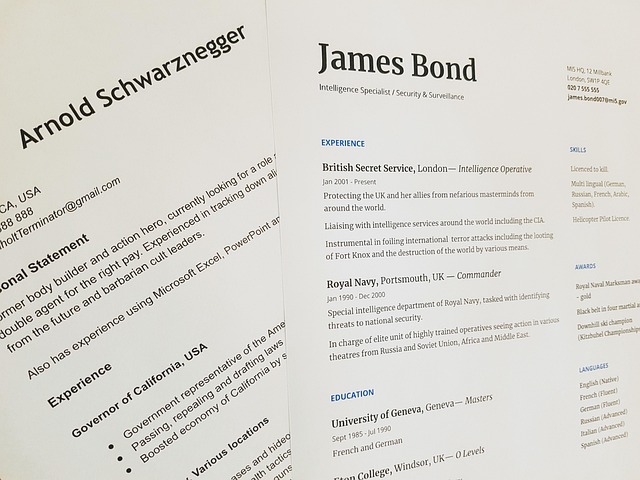Understanding Career Paths for International Professionals in the UK
Understanding how international professionals explore career opportunities in the UK involves more than just knowing the job market—it also includes grasping visa types, industry-specific requirements, and regional hiring trends. This guide outlines what individuals commonly research, from in-demand sectors like tech and healthcare to evolving work visa categories and skill expectations across key cities.

How Does the Skilled Worker Visa UK System Function?
The skilled worker visa UK represents the primary immigration route for international professionals seeking employment opportunities [1]. This visa category replaced the previous Tier 2 (General) work visa system, introducing more flexible requirements while maintaining quality standards for incoming talent. Applicants must secure a job offer from a UK employer with a valid sponsorship license, meet minimum salary thresholds, and demonstrate English language proficiency.
The skilled worker visa system operates on a points-based framework, where candidates accumulate points through various criteria including job offer confirmation, appropriate skill levels, and salary requirements. Most positions require a minimum annual salary of £26,200 or the “going rate” for specific occupations, whichever proves higher. Healthcare workers, teachers, and professionals in shortage occupations may qualify for reduced salary thresholds, making these sectors particularly accessible for international applicants.
What Types of Jobs in London for Foreigners Are Most Available?
London’s diverse economy creates numerous employment opportunities across finance, technology, healthcare, and creative industries. Jobs in London for foreigners span from entry-level positions to executive roles, with many organizations actively seeking international talent to fill skill gaps. The financial services sector, centered in the City of London and Canary Wharf, regularly recruits professionals with expertise in banking, insurance, and fintech solutions.
Technology companies throughout London offer positions ranging from software development to data analysis and cybersecurity. Creative industries, including advertising, media production, and digital marketing, frequently welcome international perspectives and multilingual capabilities. Healthcare institutions consistently recruit qualified medical professionals, nurses, and specialized technicians to address ongoing staffing needs across the National Health Service and private sector facilities.
Which Industries Represent High Demand Jobs UK Wide?
High demand jobs UK sectors include healthcare, engineering, information technology, and education, reflecting both economic growth and demographic changes. The healthcare sector experiences persistent shortages across multiple specializations, from general practitioners and nurses to mental health professionals and medical technicians. These positions often appear on the government’s Shortage Occupation List, which provides visa application advantages for qualified candidates.
Engineering roles encompass civil, mechanical, electrical, and software engineering positions, particularly in infrastructure development, renewable energy projects, and advanced manufacturing. The technology sector demands skilled professionals in artificial intelligence, cloud computing, cybersecurity, and software development. Educational institutions seek qualified teachers across various subjects, especially in mathematics, sciences, and languages, with many positions offering visa sponsorship opportunities.
How Can Professionals Find UK Visa Sponsorship Jobs?
Securing UK visa sponsorship jobs requires targeted job searching through employers registered with the Home Office as licensed sponsors. The government maintains a public register of licensed sponsors, allowing job seekers to identify companies authorized to issue Certificates of Sponsorship. Major recruitment agencies specializing in international placements often maintain relationships with sponsoring employers and can facilitate introductions for qualified candidates.
Professional networking platforms, industry-specific job boards, and direct applications to target companies represent effective strategies for discovering sponsorship opportunities. Many multinational corporations operating in the UK regularly sponsor international transfers and new hires, particularly for specialized roles requiring specific expertise. Healthcare organizations, technology companies, and engineering firms frequently offer sponsorship due to ongoing skill shortages in these sectors.
What Salary Expectations and Visa Costs Should Professionals Anticipate?
Understanding the financial implications of relocating to the UK helps international professionals plan their career transitions effectively. The skilled worker visa application involves several cost components that vary based on individual circumstances and visa duration.
| Cost Component | Standard Rate | Healthcare Surcharge | Additional Fees |
|---|---|---|---|
| Visa Application (3 years) | £719 | £624 per year | Priority processing: £500 |
| Visa Application (5 years) | £1,423 | £624 per year | Super priority: £1,000 |
| Certificate of Sponsorship | £199 (employer pays) | N/A | Immigration Skills Charge: £364-£1,000 |
Salary expectations vary significantly by industry, location, and experience level. Entry-level professionals in London typically earn between £25,000-£35,000 annually, while experienced specialists command £50,000-£80,000 or more. Healthcare professionals, IT specialists, and engineers often receive salaries above national averages, particularly in London and other major cities where cost of living remains higher.
Prices, rates, or cost estimates mentioned in this article are based on the latest available information but may change over time. Independent research is advised before making financial decisions.
What Regional Differences Affect Career Opportunities?
Career opportunities and living costs vary considerably across UK regions, influencing location decisions for international professionals. London offers the highest concentration of international companies and specialized roles but also presents the highest living costs. Manchester, Birmingham, Edinburgh, and Bristol provide growing job markets with more affordable housing and living expenses.
Scotland’s devolved immigration policies offer additional pathways for international professionals, particularly through programs designed to address demographic challenges in rural areas. Northern England cities like Manchester and Leeds have emerged as technology and financial services hubs, attracting companies seeking alternatives to London’s high operating costs. Regional salary differences often offset higher London wages, making various locations attractive depending on career goals and lifestyle preferences.
The UK job market continues evolving as employers adapt to post-Brexit immigration policies and changing economic conditions. International professionals who research visa requirements thoroughly, target appropriate industries, and understand regional variations position themselves effectively for successful career transitions. Building professional networks, obtaining relevant certifications, and demonstrating cultural awareness enhance prospects across all sectors and locations throughout the United Kingdom.
Sources
[1] https://www.gov.uk/skilled-worker-visa




